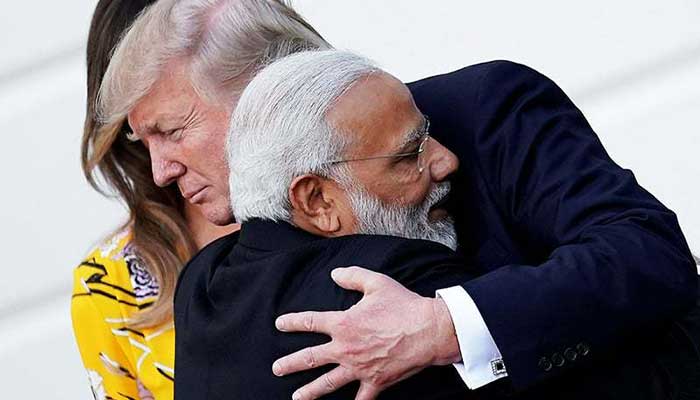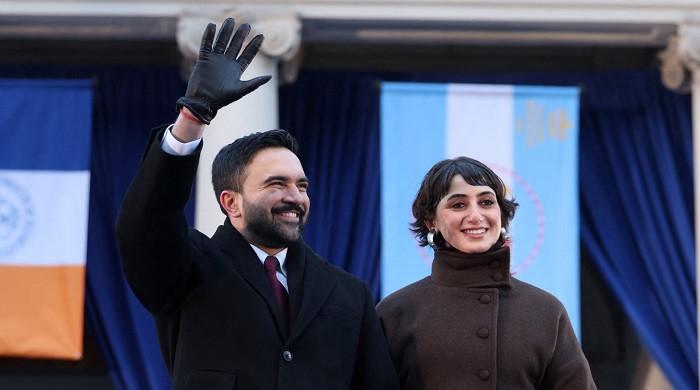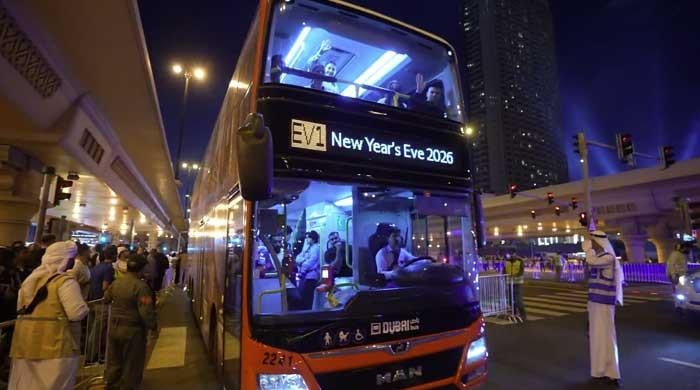Modi 'emboldened' by the West in his anti-Muslim agenda, says human rights chief
"Trump is utterly uninterested in calling out any violation by anybody other than perceived adversaries"
September 24, 2020

Indian prime minister Narendra Modi's anti-Muslim agenda has been enabled due to the failure of the West to call him out on human rights abuses, Kenneth Roth, the executive director of Human Rights Watch (HRW) has said.
In an exclusive interview with Newsweek, Roth, whose organisation investigates human rights abuses across the world, said that the West has a desire to counter China's growing influence in the world.
He said Modi's "systematic discrimination against Muslims and his tolerance of violence against Muslims" has been allowed to carry on owing to this goal.
Roth also cited US President Donald Trump's "unprincipled approach" to human rights as a reason behind the Indian leader being "emboldened" in his actions to undermine the rights of Muslims.
"Modi has largely got away with his anti-Muslim agenda and his oppression of protests against it, that is the relative lack of criticism from the West has only emboldened him on this abusive path," Roth said.
The Newsweek report notes that Modi, who a leader of the Hindu-nationalist Bharatiya Janata Party (BJP) party in India, "was banned from both the UK and the US for his role in the 2002 anti-Muslim Gujarat riots, in which more than 1,000 people were killed in communal violence, most of them Muslims".
"At the time, Modi was the then chief minister of Gujarat and stood accused of allowing the anti-Muslim riots to go ahead," it said.
The report further observes that since becoming premier, Modi has faced criticism both at home and abroad for his treatment of minorities, with the United Nations labeling a citizenship law that Modi's government passed as "fundamentally discriminatory."
The citizenship law is one that offers amnesty to non-Muslim undocumented migrants from India's neighboring countries and excludes Muslims, an act that has struck at the core of India’s secular Constitution.
Roth also notes how his actions in occupied Kashmir are part of the same agenda. And to achieve this agenda, he revoked the region's autonomous status by repealing Article 370 of the Indian constitution, which gave the region its own constitution, flag and freedom to make some laws.
Roth said: "His withdrawal of Kashmir's special constitutional status and the subsequent crackdown on dissent, shutting down the internet, all are part of this broader anti-Muslim element of BJP policy which Modi either participates in actively or simply tolerates, including the so-called cow-vigilantes, who are basically vigilantes who attack Muslims."
According to the report, Human Rights Watch described the use of communal rhetoric of protecting the cow, an animal considered sacred, by members of the ruling BJP “as encouraging attacks on minorities who consume beef or engage in the cattle trade”.
Roth, in response to why the West is reluctant to call out such human rights violations in India, said:
"[Kashmir is] one piece of a larger anti-Muslim agenda which the West has largely ignored. India is a major power, a major country. There is increasing tension with China and some just soften the criticism of India because they see it as an ally in competition with China.”
"Trump is utterly uninterested in calling out any human rights violation by anybody other than a handful of perceived adversaries: China, Venezuela, Iran, Nicaragua and Cuba and that's about it, which is a completely unprincipled approach to human rights which does not attract any adherence and greatly weakens the force of US intervention."
Responding to Roth's remarks, a US State Department spokesperson said: "Promoting, protecting, and advancing human rights and fundamental freedoms is a top priority for the United States.
"We support human rights defenders in a wide variety of environments, and support programmes and policies to help countries solidify their role as or develop into democratic and human rights-respecting partners.
"Countering the malign actions of authoritarian states, including their attempts to undermine democratic governance and redefine human rights through tools such as disinformation, is a key part of the Department's work and a focus of our partnerships with like-minded governments and international organisations."









